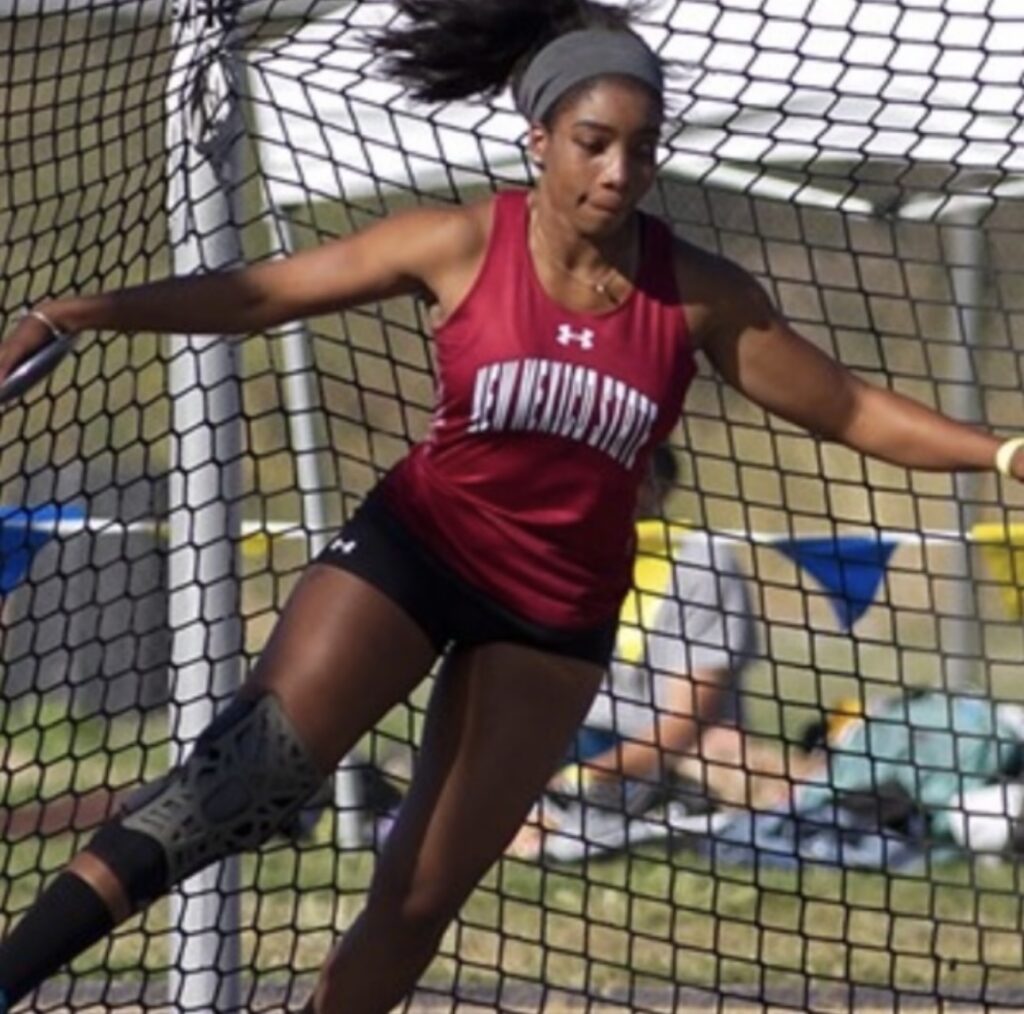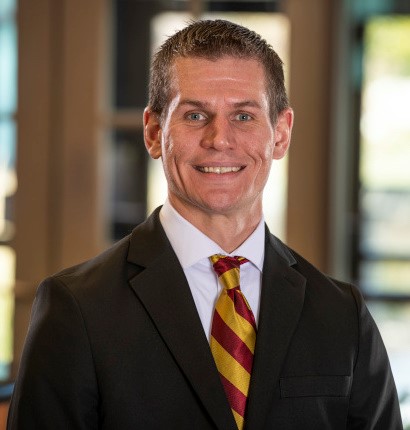Applying Human Computer Interaction to Brain Injuries
With an appreciation for the value of education and an athlete’s work ethic, Akuadasuo Ezenyilimba brings a unique perspective to her research.

Published April 19, 2024
By Nick Fetty
Digital Content Manager
Athletes, military personnel, and others who endure traumatic brain injuries (TBI) may experience improved outcomes during the rehabilitation process thanks to research by a Fellow with Arizona State University and The New York Academy of Sciences.
Akuadasuo Ezenyilimba, a member of the inaugural cohort of the Academy’s AI and Society Fellowship, conducts research that aims to improve both the quality and the accessibility of TBI care by using human computer interaction. For Ezenyilimba, her interest in this research and STEM more broadly can be traced back to her upbringing in upstate New York.
Instilled with the Value of Education
Growing up in Rochester, New York, Ezenyilimba’s parents instilled in her, and her three younger siblings, the value of education and hard work. Her father, Matthew, migrated to the United States from Nigeria and spent his career in chemistry, while her mother, Kelley, grew up in Akron, Ohio and worked in accounting and insurance. Akuadasuo Ezenyilimba remembers competing as a 6-year-old with her younger sister in various activities pertaining to their after-school studies.
“Both my mother and father placed a strong emphasis on STEM-related education for all of us growing up and I believe that helped to shape us into the individuals we are today, and a big reason for the educational and career paths we all have taken,” said Ezenyilimba.
This competitive spirit also occurred outside of academics. Ezenyilimba competed as a hammer, weight, and discus thrower on the track and field team at La Cueva High School in New Mexico. An accomplished student athlete, Ezenyilimba was a discus state champion her senior year, and was back-to-back City Champion in discus as a junior and senior.

Her athletic prowess landed her a spot on the women’s track and field team as an undergraduate at New Mexico State University, where she competed in the discus and hammer throw. Off the field, she majored in psychology, which was her first step onto a professional path that would involve studying the human brain.
Studying the Brain
After completing her BS in psychology, Ezenyilimba went on to earn a MS in applied psychology from Sacred Heart University while throwing weight for the women’s track and field team, and then went on to earn a MS in human systems engineering from Arizona State University. She then pursued her PhD in human systems engineering at Arizona State, where her dissertation research focused on mild TBI and human computer interaction in regard to executive function rehabilitation. As a doctoral student, she participated in the National Science Foundation’s Research Traineeship Program.
“My dissertation focused on prototype of a wireframe I developed for a web-based application for mild traumatic brain injury rehabilitation when time, finance, insurance, or knowledge are potential constraints,” said Ezenyilimba. “The application is called Ụbụrụ.”
As part of her participation in the AI and Society Fellowship, she splits her time between Tempe, Arizona and New York. Arizona State University’s School for the Future of Innovation in Society partnered with the Academy for this Fellowship.
Understanding the Societal Impacts of AI
The Fellowship has provided Ezenyilimba the opportunity to consider the societal dimensions of AI and how that might be applied to her own research. In particular, she is mindful of the potential negative impact AI can have on marginalized communities if members of those communities are not included in the development of the technology.
“It is important to ensure everyone, regardless of background, is considered,” said Ezenyilimba. “We cannot overlook the history of distrust that has impacted marginalized communities when new innovations or changes do not properly consider them.”
Her participation in the Fellowship has enabled her to build and foster relationships with other professionals doing work related to TBI and AI. She also collaborates with her fellow cohort postdocs in brainstorming new ways to address the topic of AI in society.
“As a Fellow I have also been able to develop my skills through various professional workshops that I feel have helped make me more equipped and competitive as a researcher,” she said.
Looking Ahead
Ezenyilimba will continue advancing her research on TBI. Through serious gamification, she looks at how to lessen the negative context that can be associated with rehabilitation and how to better enhance the overall user experience.
“My research looks at how to increase accessibility to relevant care and ensure that everyone who needs it is equipped with the necessary knowledge to take control of their rehabilitation journey whether that be an athlete, military personnel, or a civilian,” she said.
Going forward she wants to continue contributing to TBI rehabilitation as well as telehealth with an emphasis on human factors and user experience. She also wants to be a part of an initiative that ensures accessibility to and trust in telehealth, so everyone is capable of being equipped with the necessary tools.
Outside of her professional work, Ezenyilimba enjoys listening to music and attending concerts with family and friends. Some of her favorite artists include Victoria Monet and Coco Jones. She is also getting back into the gym and focusing on weightlifting, harkening back to her days as a track and field student-athlete.
Like many, Ezenyilimba has concerns about the potential misuses of AI by bad actors, but she also sees potential in the positive applications if the proper inputs are considered during the development process.
“I think a promising aspect of AI is the limitless possibilities that we have with it. With AI, when properly used, we can utilize it to overcome potential biases that are innate to humans and utilize AI to address the needs of the vast majority in an inclusive manner,” she said.
